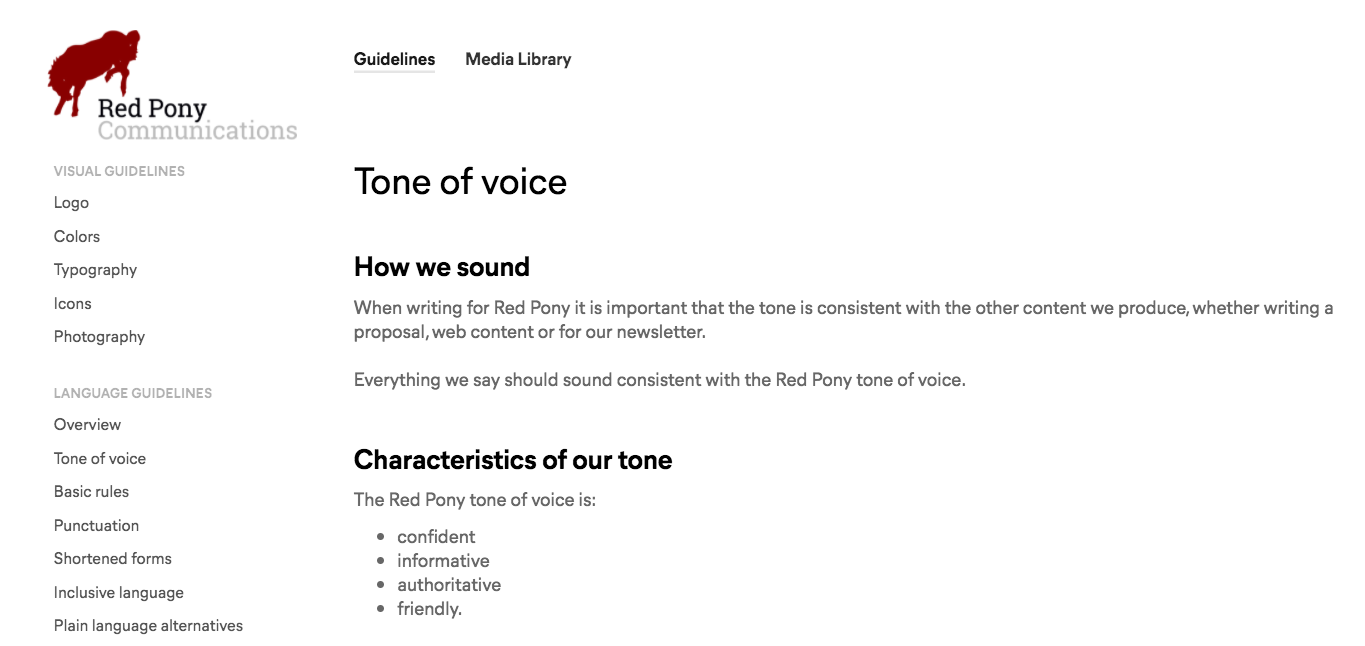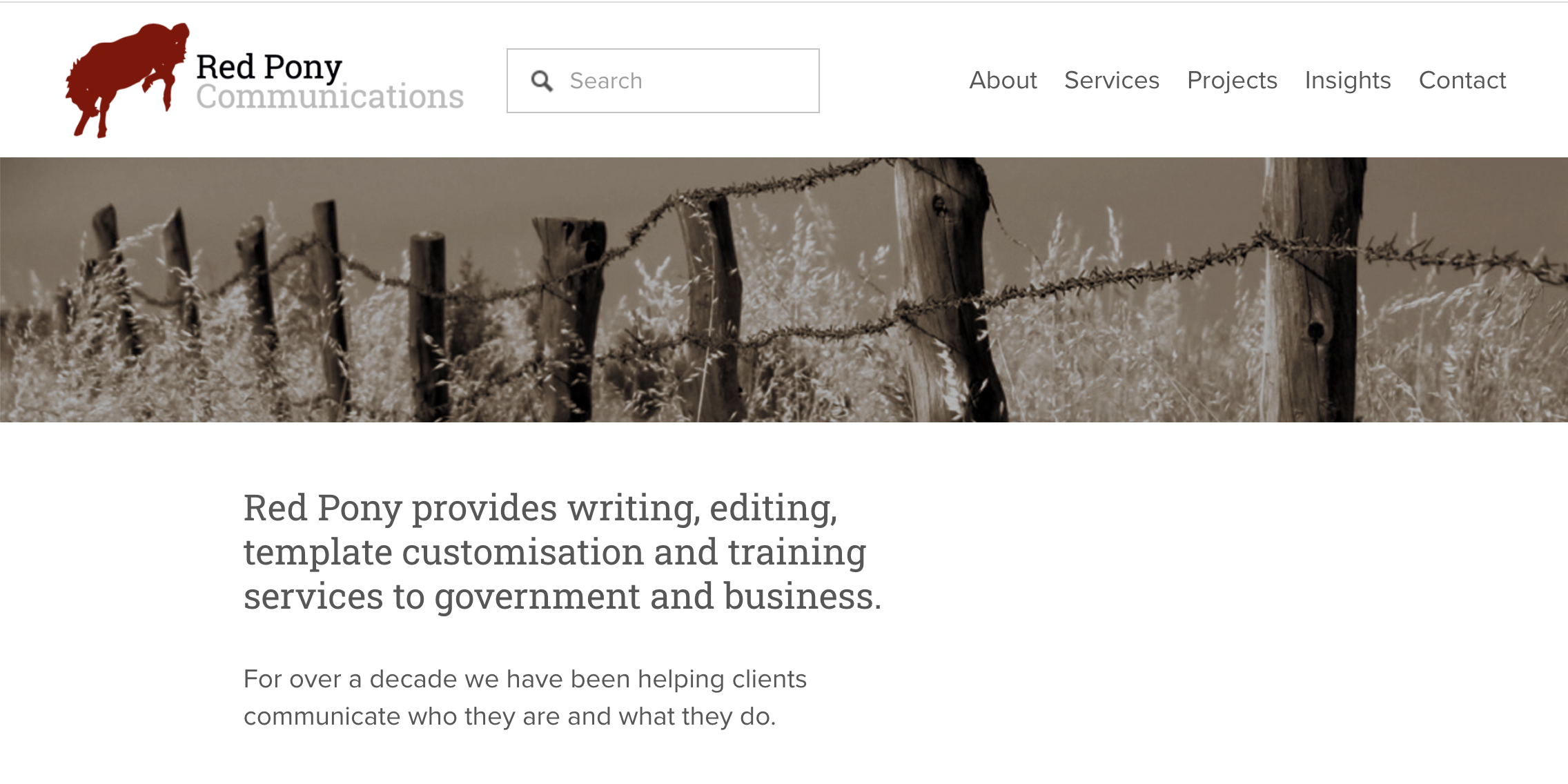Insights archive
Red Pony is a team of writers, editors, Microsoft Office template developers and communications trainers. We have been writing about our areas of expertise for over a decade in our Red Pony Express newsletter.
This collection features the best articles from the last 10 years.

Maintaining your language style guide
A language style guide specifies how people should write for your organisation – how formal or casual the tone, any preferences for certain terms, whether or not to use Oxford commas … it’s effectively the language equivalent of a design style guide that specifies such things as the colours of the logo and the fonts to use.

How COVID-19 is changing the way we work
The pandemic has accelerated work trends that might have otherwise taken years to become common practice. Fortuitously, many of the technologies required to make this possible have matured at just the right time, including the availability of broadband internet and powerful portable computers combined with ubiquitous teleconferencing applications like Zoom, Google Meet and Microsoft Teams.

Your website is never finished
A website should never be a static thing. Red Pony’s own web presence has gone through a number of minor and major revisions over the years. Changes to the content and the structure reflected changes in the business as well as upgrades to the underlying software platform.

Panic stations: fear amid an ‘infodemic’
There is much uncertainty and fear in the current COVID-19 crisis. We fear the disease itself, the possibility of death, the unknown. We fear the loss of our livelihoods, our ability to connect with others as we have done and of life as we know it. Many of us have already suffered losses, and for some the prospect of more loss is devastating. Much of this fear is real. But there is also much misinformation, intended or not.

Seeing names: the fascinating world of synaesthesia
I’m terrible at remembering people’s names. I’m well aware of this deficiency and over the years I’ve made a conscious effort to address it, admittedly with limited success. As Dale Carnegie once observed, ‘A person’s name is, to that person, the sweetest and most important sound in any language.’

Email tone detector: helpful tool or cultural imperialism?
I’m always interested to see how automation and artificial intelligence are being deployed to help people write more clearly. The latest innovation to catch my eye is a ‘tone detector’ from the popular writing assistant software developer Grammarly.
Social media language in the workplace?
It only takes a work commute to realise how constantly we connect to the web. Next time you’re on public transport, have a look at what others are doing. Never before has there been so much information, so readily accessible, at the tap of our fingertips.
One idea for better writing
It sounds a bit simplistic to say to that one idea will improve your writing, doesn’t it? But it’s true. Just one idea can make a big difference.
A body of writing: good bones are just the beginning
When someone says a house has ‘good bones’ we tend to think of a solid structure, or a floor plan that can be used or improved without major renovation. In writing, ‘good bones’ also implies a sound structure, providing clear direction and logical flow of information. However, I actually think of this as the skeleton rather than the bones.
Is English becoming toxic?
Despite a global push for the use of plain English to boost reader understanding and accessibility, recent language trends and buzzwords suggest that English is actually becoming less accessible for the average user.
A Style manual for the digital age
Whenever I find myself editing a document, there are two resources I keep close at hand – a dictionary and the Australian Government Style manual. Unlike the dictionary, which I can access online (depending on the version required), the Style manual has always been a physical publication. Hopefully that is soon to change.
The global language of Christmas decorations
Many years ago I spent my first (and to date only) Christmas in Europe, where I experienced the winter-themed decorations adorning the streets and shopfronts in their original context for the first time.
Writing that’s ‘fit for purpose’
To determine whether something is fit for purpose, it must first be clear what the ‘purpose’ is. What are you intending to use the product for? The same applies to writing. All writing has a purpose or particular objective for a specific audience.
Is writing a dying art?
Whenever he conducts a business writing workshop, our trainer asks participants what proportion of their workday is spent writing (e.g. emails, reports and presentations). The answer is usually somewhere between 50 and 75 per cent.
How to identify fake news
The result is that people have become more sceptical of all forms of media, and less likely to accept information presented to them, no matter how credible. It's therefore more important than ever to practise 'critical reading', something we may have first learnt about in school.
Experts vs beginners: know your audience
You cannot write well if you don’t know your audience. It’s one of the first questions we ask our clients. The same point can and should be conveyed completely differently, depending on who will be reading it.
Where do Christmas cards come from?
Ever wondered where the tradition of sending Christmas cards originated? I did, so I undertook a little research (okay, I googled it and did some reading on Wikipedia). Here’s what I learnt … The general consensus is […]
How to tell someone they’re wrong
When is it a good idea to correct your boss? A fellow editor recently recounted the story of a teacher she knew who had been asked by the school principal to capitalise every instance of the word ‘maths’ in her student reports.
The generosity of plain English
Red Pony’s business writing trainer describes plain English writing as ‘putting the extra work in so your reader doesn’t have to’. Putting that extra effort in is an act of generosity towards your reader – it’s a kindness.

How a missing comma cost $13 million
Now a court in the US state of Maine has determined that an absence of a comma has cost a trucking company $US10 million (approximately AU$13 million) in unpaid overtime.
